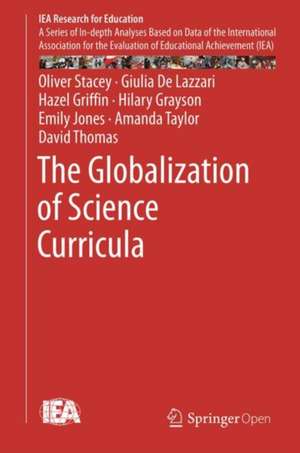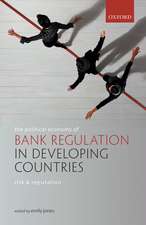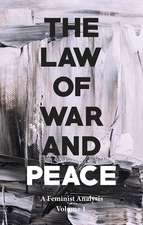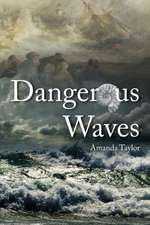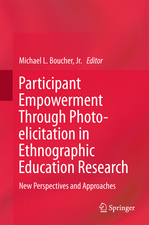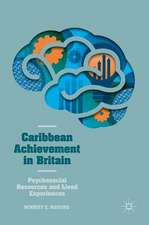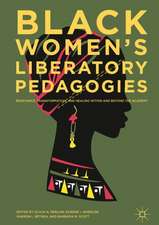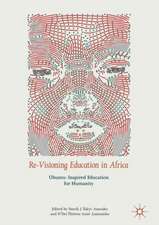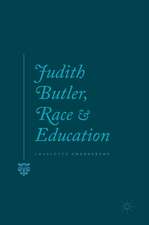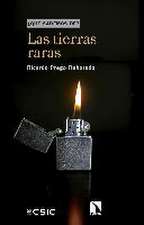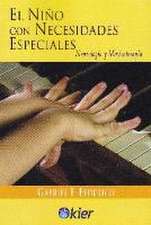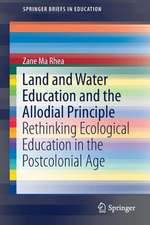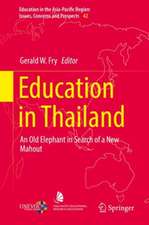The Globalization of Science Curricula: IEA Research for Education, cartea 3
Autor Oliver Stacey, Giulia De Lazzari, Hilary Grayson, Hazel Griffin, Emily Jones, Amanda Taylor, David Thomasen Limba Engleză Hardback – 19 feb 2018
This open access book provides a significant and timely investigation into the impacts that globalization has exerted on science curricula in a diverse range of countries using extensive data sets collected by the IEA between 1995 and 2015. Using a combination of quantitative and qualitative methods, this book considers the extent to which there have been changes to the intended and implemented science curricula in different countries over the last 20 years. Consideration is then given as to whether science curricula are becoming increasingly similar across countries over time. Finally the issue of whether the basis of an international core curriculum can be identified is addressed. Readers will gain a unique insight into the extent to which globalization and large scale international assessments have influenced science curricula in the last 20 years within both the primary and secondary phases.
Din seria IEA Research for Education
-
 Preț: 361.05 lei
Preț: 361.05 lei -
 Preț: 418.62 lei
Preț: 418.62 lei -
 Preț: 362.82 lei
Preț: 362.82 lei -
 Preț: 345.47 lei
Preț: 345.47 lei -
 Preț: 349.29 lei
Preț: 349.29 lei -
 Preț: 291.51 lei
Preț: 291.51 lei -
 Preț: 369.80 lei
Preț: 369.80 lei -
 Preț: 416.96 lei
Preț: 416.96 lei -
 Preț: 360.64 lei
Preț: 360.64 lei -
 Preț: 360.64 lei
Preț: 360.64 lei -
 Preț: 367.70 lei
Preț: 367.70 lei -
 Preț: 360.34 lei
Preț: 360.34 lei - 16%
 Preț: 299.52 lei
Preț: 299.52 lei
Preț: 414.86 lei
Nou
Puncte Express: 622
Preț estimativ în valută:
79.45€ • 81.86$ • 66.56£
79.45€ • 81.86$ • 66.56£
Carte disponibilă
Livrare economică 03-17 februarie
Preluare comenzi: 021 569.72.76
Specificații
ISBN-13: 9783319715315
ISBN-10: 3319715313
Pagini: 65
Ilustrații: X, 100 p. 11 illus.
Dimensiuni: 155 x 235 mm
Greutate: 0.34 kg
Ediția:1st ed. 2018
Editura: Springer International Publishing
Colecția Springer
Seria IEA Research for Education
Locul publicării:Cham, Switzerland
ISBN-10: 3319715313
Pagini: 65
Ilustrații: X, 100 p. 11 illus.
Dimensiuni: 155 x 235 mm
Greutate: 0.34 kg
Ediția:1st ed. 2018
Editura: Springer International Publishing
Colecția Springer
Seria IEA Research for Education
Locul publicării:Cham, Switzerland
Cuprins
1. Has Globalization Impacted Science Curricula? An Introduction.- 2. A Review of the Existing Literature on Globalization of Science Curricula.- 3. Methodology: Examining the Globalization of Science Curricula Using TIMSS.- 4. Results: Evidence for the Globalization of Science Curricula from TIMSS.- 5. The Globalization of Science Education and Science Curricula: Discussion and Conclusions.- 6. Future Directions and Topics for Further Research Into The Globalization of Science Curricula.
Recenzii
Notă biografică
Textul de pe ultima copertă
Globalization is a powerful force with far reaching impacts on education and education policy. The growth of large scale international surveys of student achievement and the increasing role played by intergovernmental agencies in education means that the influence that globalization exerts on education is likely to increase even further in the future.
This open access book provides a significant and timely investigation into the impacts that globalization has exerted on science curricula in a diverse range of countries using extensive data sets collected by the IEA between 1995 and 2015. Using a combination of quantitative and qualitative methods, this book considers the extent to which there have been changes to the intended and implemented science curricula in different countries over the last 20 years. Consideration is then given as to whether science curricula are becoming increasingly similar across countries over time. Finally the issue of whether the basis of an international core curriculum can be identified is addressed. Readers will gain a unique insight into the extent to which globalization and large scale international assessments have influenced science curricula in the last 20 years within both the primary and secondary phases.
This open access book provides a significant and timely investigation into the impacts that globalization has exerted on science curricula in a diverse range of countries using extensive data sets collected by the IEA between 1995 and 2015. Using a combination of quantitative and qualitative methods, this book considers the extent to which there have been changes to the intended and implemented science curricula in different countries over the last 20 years. Consideration is then given as to whether science curricula are becoming increasingly similar across countries over time. Finally the issue of whether the basis of an international core curriculum can be identified is addressed. Readers will gain a unique insight into the extent to which globalization and large scale international assessments have influenced science curricula in the last 20 years within both the primary and secondary phases.
Caracteristici
Investigates globalization in education using one of the most comprehensive data sets available Allows the effect of globalization to be measured over an extended 20 year time period Makes innovative use of latent class analysis to statistically identify groups of countries with similar underlying science curricula Enables changes to one of the most significant aspects of education (the curriculum) to be directly tracked over time
